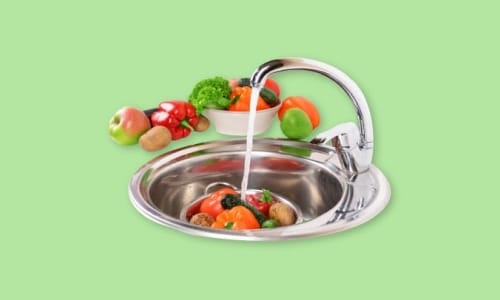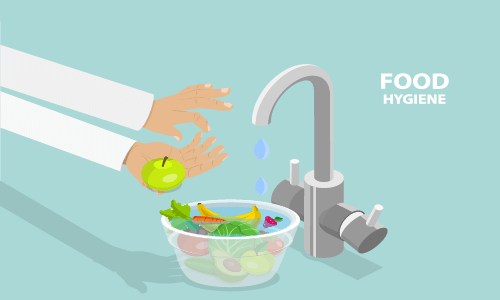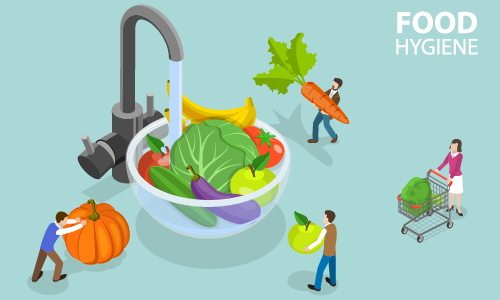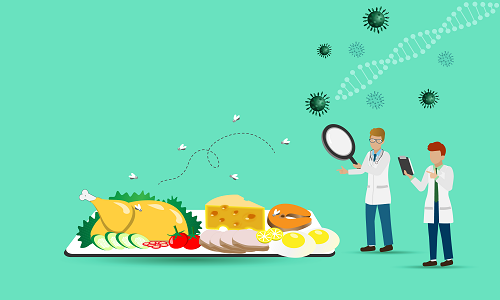-
 Cart
Cart
No products in the basket.
- Login/Signup


Registering for this site is easy. Just fill in the fields below, and we'll get a new account set up for you in no time.

Sign in to your One Education account
Food Hygiene and Safety for Catering
Our Food Safety and Hygiene for Catering course falls under the Level 2 category, which is perfect for you if you want to minimise potential hazards while maintaining food purity and high standards. This training will help you become capable of offering less hazardous and more successful catering operations.
Food Hygiene and Safety for Catering
OR



1 Year Access
Level 2
2007 Students
-
1 week, 6 days
Buying more than one of the same courses?
- 50% discount for orders of 10+ courses
- 65% discount for orders of 25+ courses
- 75% discount for orders of 50+ courses
Looking for a more personalised package?
contact us nowget Access To All 3500+ One Education Courses For Just £49/Year!
Claim Offer
Description
Food Hygiene and Safety for Catering is an in-depth course designed to provide catering personnel with the information and skills needed to achieve the highest food safety and hygiene standards. It offers an extensive exploration of essential topics associated with food safety and hygiene. You will gain an edge over your rivals, prioritise public health, and promote any catering company to the pinnacle through this essential course.
This level 2 food hygiene and safety for catering training assures participants are well-prepared to manage the intricacies of the catering sector. You’ll get an understanding of the legal guidelines for food safety in catering and overall regulatory frameworks. You will learn to detect and control microbiological risk while establishing the best practices for preventing bacterial contamination. You will be able to detect and handle physical and chemical threats, as well as employ allergic risk management measures.
This food safety and hygiene for catering course will help you recognise typical food poisoning risks and put effective preventative measures in place. You will get an understanding of food spoilage and the importance of personal hygiene and cleanliness in the catering setting. You’ll learn more about establishing principles of HACCP in food establishments, specifically how to adjust to the new norm amid the COVID-19 pandemic.
Come along on our quest to achieve the highest food safety and hygiene standards in the catering sector. Enrol in our food safety class now to expand your knowledge and help create a safer atmosphere for food service professionals!
Aims of The Course
The primary goals of this Food Hygiene and Safety for Catering training are:
- Clarifying the basic food hygiene principles, its significance, governing bodies' rules and regulations, and the roles people and organisations play in upholding food safety standards.
- Gain knowledge about the factors impacting the spread and growth of bacteria in food, along with preventive measures to minimise microbial risks.
- Recognise the chemical and physical risks that contaminate food, develop preventative measures, and stress the value of allergy control in catering.
- Emphasise the vitality and effects of personal hygiene in the food service sector.
- Acknowledge the proper use of cleaning supplies and sanitation techniques, as well as the significance of maintaining cleanliness in food facilities.
- Gain insight into how handling, storage, and temperature regulation can help avoid foodborne diseases.
- Discover the symptoms of food rotting, as well as the reasons and suitable food storage strategies for ensuring freshness and quality.
- Learn the fundamentals of HACCP in detail, including how to recognise and manage risks at crucial stages of food production and the significance of record-keeping and documentation.
- Explore complex HACCP concepts, such as continuous improvement, plan modification, monitoring, and verification.
- Understand the unique issues that the COVID-19 pandemic poses to the food sector, as well as techniques for safely restarting a food business and the need to adjust operational practises to comply with health recommendations.
What You Will Learn from This Training
- Demonstrate a complete awareness of food safety standards and legal requirements.
- Determine and evaluate the risks related to microbiology, physics, chemicals, and allergies in a catering environment.
- Acknowledge the advanced principles of HACCP and how they are applied to preserve food safety.
- Adapt appropriate preventative action to avoid food poisoning.
- Use the finest personal hygiene and cleaning practices possible when working in a catering setting.
- Develop plans for reopening and adjusting a food business during and after COVID-19.
- Learn about food deterioration, storage methods, and cleaning procedures.
Topics Covered in This Course
Catering personnel should take the essential Food Safety and Hygiene for Catering course to gain the information and abilities needed to uphold the strictest standards of food safety and cleanliness. This training makes sure participants are well-prepared to manage the complexity of the catering sector, from regulatory obligations to microbiological concerns, as well as responding to difficulties like COVID-19 and HACCP principles. This course delves into ten core areas:
- Introduction to Food Safety and the Law
- Bacteria and Microbiological Hazards
- Physical, Chemical and Allergenic Hazards
- Food Poisoning and Control Measures
- Food Spoilage and Food Storage
- Personal Hygiene
- HACCP and Food Premises Part 01
- HACCP and Food Premises Part-02
- Cleaning
- Reopening and Adapting Your Food Business During COVID-19
Course Duration
The Level 2 Food Safety and Hygiene for Catering is made to work with various schedules. Participants can study at their own speed over a standard timeframe of one week and six days, which is accessible for up to a year. The adaptable framework guarantees mobility for enterprises and working professionals.
Who Is This Course For?
- Food Chemists
- Agricultural Inspectors
- Supervisors of Food Preparation and Serving Workers
- Food Stylists
- Food Scientists
- Food Preparation Workers
- Food Service Managers
- Chefs
- Food Bloggers
- Front House Workers
- Catering and Kitchen Assistants
- Support, Care or Charity Workers
- Barista
- Bartenders
- Nursery Staff
- Anyone Interested in Food Safety and Hygiene
Entry Requirements
There are no prerequisites for taking the Food Hygiene and Safety for Catering training. Anyone interested in catering, food service, or overseeing food safety in a catering setting is welcome to sign up.
Certification
You will obtain a CPD QS accredited certification confirming your expertise and dedication to food safety from One Education if you successfully complete the food hygiene and safety for catering course. This well-known food certificate will contribute significantly to your professional competence and help you pass the food safety tests and catering operations.
After completing this course's assessment, you will be eligible for:
- A CPD QS accredited Certificate from One Education.
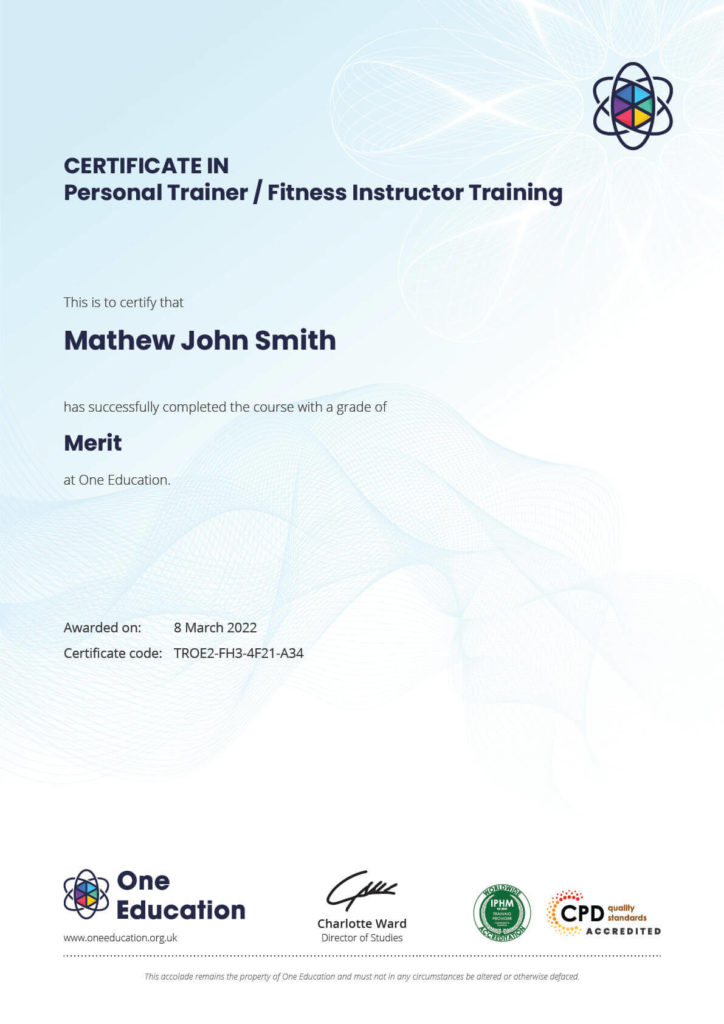
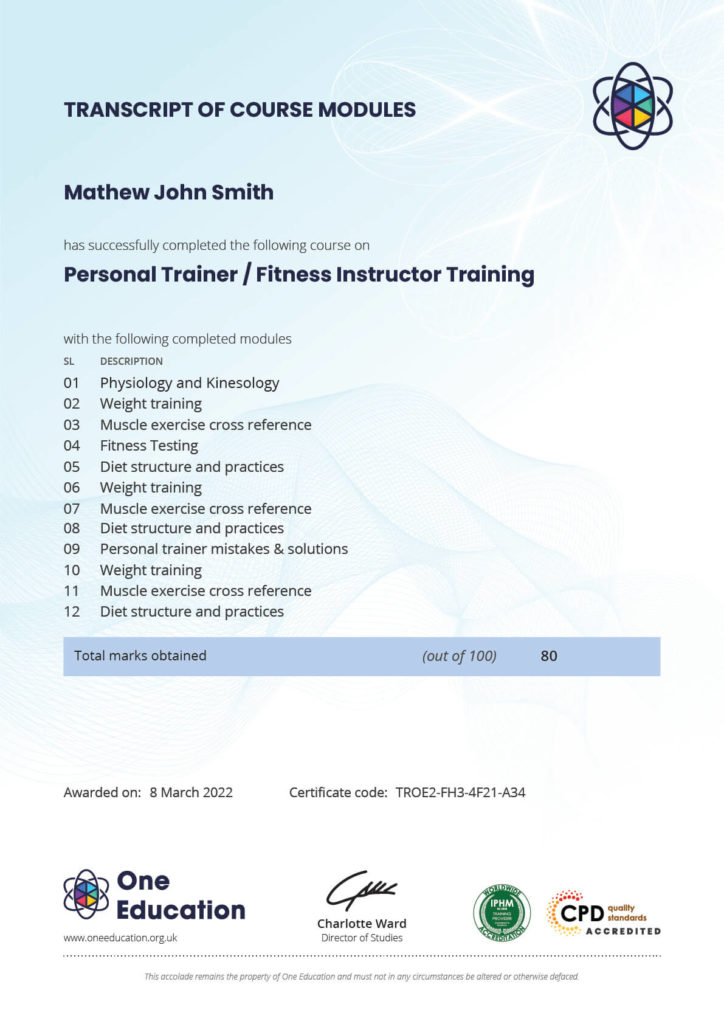
The CPD QS accredited certificate is available in PDF format, at the cost of £9, or a hard copy can be sent to you via post, at the cost of £15.
You can Order Your CPD QS Accredited Certificate from here.
- Endorsed Certificate of Achievement from the Quality Licence Scheme
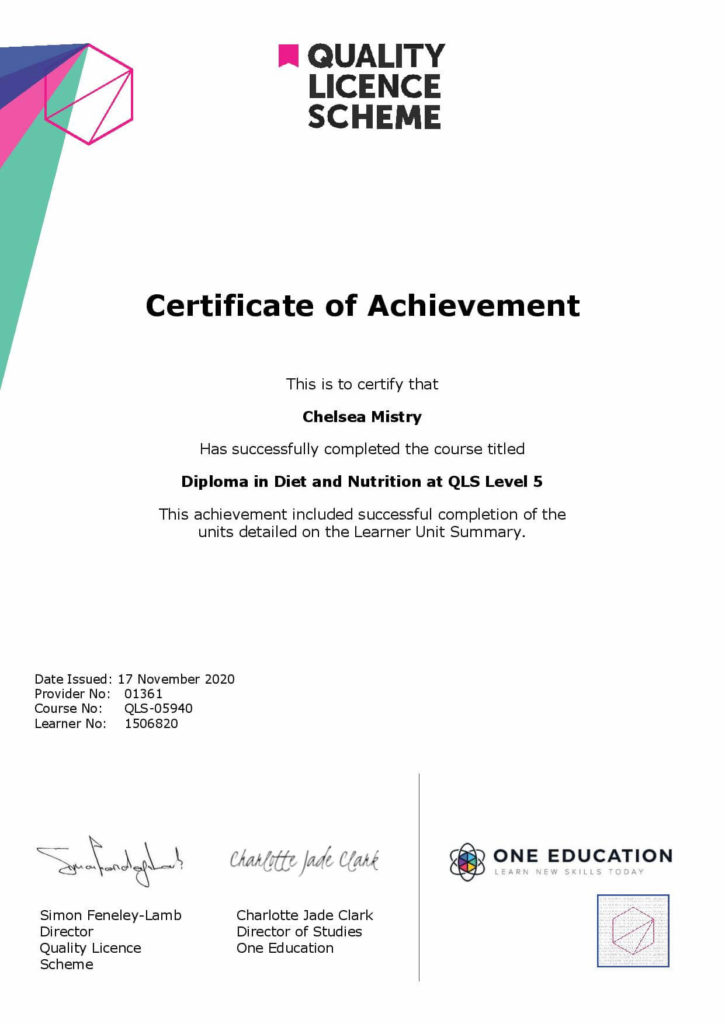
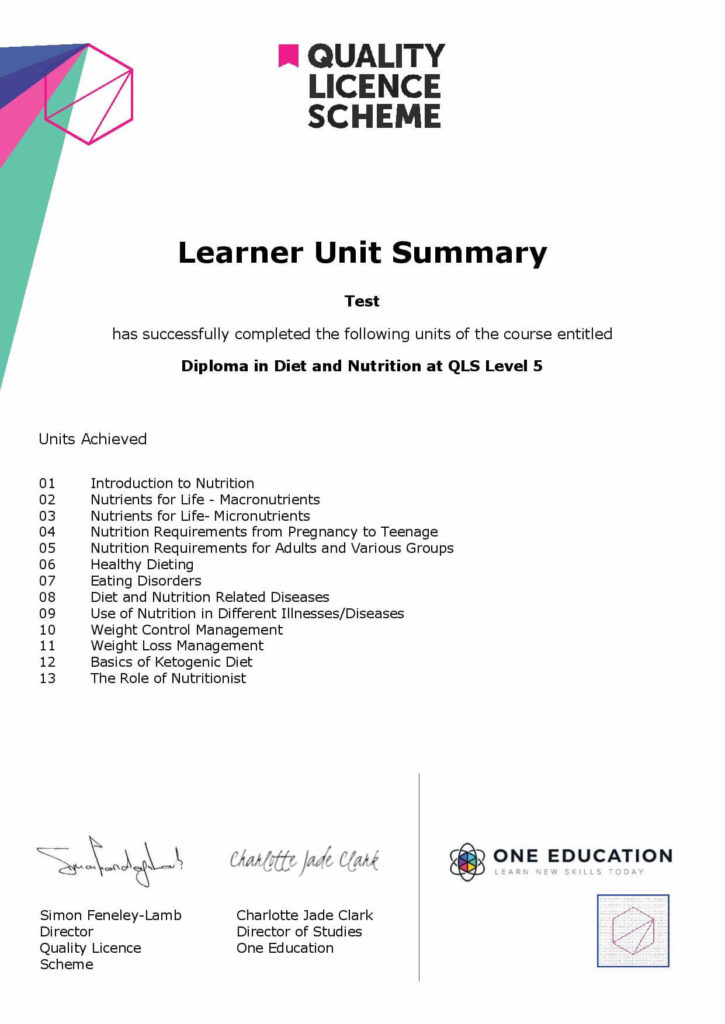
After successfully completing the course, you will be able to order an endorsed certificate as proof of your new achievement. Endorsed certificates can be ordered and get delivered to your home by post for only £69. There is an additional £10 postage charge for international students.
You can Order Your QLS Endorsed Certificate from here.
Why Should You Take This Course?
The training provides excellent comprehension and adherence to the fundamental legal standards for food safety in catering. It ensures outstanding food safety in the catering environment by identifying and mitigating numerous risks and promotes confidence in customers by displaying a dedication to their health and safety. By maintaining the highest standards of food safety and cleanliness, you’ll improve the reputation of your catering business and acquire insights into how to modify your business operations amid the difficult circumstances presented by the COVID-19. There are several fascinating advantages of taking the food hygiene qualification online, including:
- Industry Recognition
- Enhanced Food Safety
- Regulatory Compliance
- Customer Credibility
- Personal and Professional Growt
- Public Health
- Adaptability to COVID-19 Measures
- Risk Mitigation
Method Of Assessment
To Assess Your Learning, You Have To Participate In An Automated Multiple-Choice Question Exam. You Have To Score At Least 60% To Pass The Exam And To Qualify For Quality Licence Scheme Endorsed And CPD Accredited Certificates. After Passing The Exam, You Will Be Able To Apply For A Certificate.
In Addition, To Enhance The Depth Of Your Knowledge Regarding The Course And Further Assess Your Learning, You Are Advised To Complete The Assignment Questions Provided At The End Of The Course, Which You Can Complete Anytime You Wish. After Submitting The Assignment, Our Expert Tutor Will Assess Your Assignment And Will Give You Feedback On Your Performance.
Career Path
This Food Hygiene Level 2 Course Will Equip Learners With A Range Of Skills Required To Handle, Prepare And Serve Food. It Is Ideal For Those In The Following Professions:
- Chef
- Waiting Staff
- Kitchen Manager
- Barista
- Catering Assistant
- Food Production Assistant
Frequently Asked Questions
The Food Hygiene and Safety for Catering course provides you with the necessary information and abilities and improves your employability by proving your dedication to maintaining the highest levels of food safety and cleanliness. It might help you stand out as a candidate in the catering industry’s competitive employment market.
This course’s expertise can be used in various professions in the catering business. Whether you’re a chef, kitchen staff, or catering management, the skills you’ll get here may lead to various careers in the industry. However, landing a job isn’t guaranteed.
This Food Safety and Hygiene for Catering course is more suitable for intermediate and advanced-level students with at least some previous knowledge of food hygiene and safety. If you are a beginner, then it’s recommended that you complete the basic hygiene courses like level 1 food hygiene certificate, food hygiene and safety level 2 and food hygiene and safety level 3 first.
You can go through this helpful guide to know which food hygiene certificate you need to work in the food industry.
Depending on the course and regional regulations, a food safety certificate usually lasts two to five years. The certificate must be renewed after its expiration.
If you find the topics explored in this Food Certification fascinating and want to expand your knowledge, you can partake in our advanced food hygiene courses. Food Allergy Awareness Training and Level 3 Supervising Food Safety in Catering courses offer more profound expertise and attributes to help you thrive in the food industry.
Getting a food hygiene certificate isn’t that hard; all you need to do is:
Step 1: Choose an authorised educational site like One Education.
Step 2: Enrol in this Food Hygiene and Safety for Catering course.
Step 3: Pass the assessment after completing the training.
Step 4: Get your accredited certificate.
Step 5: Renew the certification if necessary and keep up with changes in food safety requirements.
No, this food hygiene and safety for catering course originally cost £707.18, but now you can get it for £48.26.
Depending on your position and duties in the food sector and the regulatory framework in your region, you might need a specific food hygiene certification. There are typically several certification levels for food hygiene:
Introduction to Food Hygiene (Level 1): As a beginner or someone just curious about food hygiene should start with level 1. This food safety level 1 course will introduce you to the basics of food hygiene, its significance in public health, awareness of common sources of foodborne illnesses and relevant regulations.
Basic Food Hygiene Certificate (Level 3 ): Individuals engaged in food preparation, handling, and serving, such as kitchen employees, servers, and food handlers, should hold this certification.
Intermediate Food Hygiene Certificate (Level 3): Professionals in positions like supervisors, managers, or anyone in a leadership role in a food establishment should go for this certification.
Advanced Food Hygiene Certificate (Level 4 or 5): This level is intended for people responsible for Hazard Analysis and Critical Control Points (HACCP) and food safety management systems within an organisation.
You must obtain the appropriate certification to suit the unique requirements of the job you have. Consult your employer or local regulatory authorities to discover which certificate is relevant for your career since standards vary depending on region and kind of food outlet.
Yes, if you will work in the food industry, you surely need one. A food hygiene course will help you work your way up and maintain a healthy environment.
You can visit One Education for relevant HACCP courses.
Depending on the course and regional regulations, a food safety certificate usually lasts two to five years. The certific
Whether you need training to work in food manufacturing mainly relies on the kind of position you seek and the regional legislation. A broad spectrum of jobs, including production managers, quality control specialists, food technologists, and entry-level workers, are involved in the food manufacturing industry.
If you intend to work in food manufacturing, you should take food safety and hygiene trainings. However, the exact requirements may differ depending on the role and region. It guarantees that you are contributing to the safe manufacture of food items, safeguarding consumers’ health, and assisting you in meeting regulatory obligations. Additionally, it will improve your credentials and opportunities to advance in the industry.
ate must be renewed after its expiration.
When discussing food awareness and hygiene, the term “S.A.F.E” typically refers to ensuring that food is safe to consume by adhering to recommended food safety procedures. S.A.F.E food hygiene acronym UK highlights the following fundamentals of food safety:
S – Storage: Food should be stored properly to avoid contamination, deterioration, and the development of dangerous germs.
A – Avoid Cross-Contamination: Stop hazardous bacteria from spreading from one surface or food to another.
F – Food Temperature Control: To avoid bacterial development, maintain proper cooking, cooling, and storage temperatures.
E – Employee Hygiene: Ensure food handlers maintain good personal hygiene, including washing their hands often and dressing appropriately.
Courses on One Education typically involve the following steps:
Step 1: Choose a course, enrol in the course and pay the fee.
Step 2: Access all course materials, such as lessons, assessments, and assignments.
Step 3: Learn at your own speed and complete the tasks and evaluations.
Step 4: Upon successful completion, receive an accreditation.
Step 5: Make use of the given resources.
Step 6: Some courses provide lifetime access to content.
Step 7: Check the course specifications and platform policies for the course you’re interested in since specific details might differ.
It totally depends on you. If you need an upgrade in your skills and workforce, you can purchase One Education’s food safety and hygiene course.
Depending on the course and regional regulations, a food safety certificate
Food hygiene rating meaning focuses on a numerical number that represents a food business’s cleanliness and safety requirements. In the United Kingdom, food hygiene ratings vary from 0 to 5. Here’s an explanation of what each rating means:
0: Urgent Improvement Necessary – A company with this grade has failed to reach adequate standards in several categories, indicating that immediate improvement is necessary.
1: Major Improvement Necessary – The company’s hygiene practices need to be significantly improved.
2: Improvement Necessary – The company hasn’t performed to the highest standards; there’s still room for development.
3: Generally Satisfactory – The company still has room for development even if it satisfies all regulatory criteria.
4: Good – Hygiene regulations are largely followed by the company. High standards are being met, and the necessary safety measures are being taken.
5: Very Good – The highest ranking suggests that the company maintains very high levels of hygiene. It has shown to take a proactive stance in guaranteeing food safety.
usually lasts two to five years. The certificate must be renewed after its expiration.
To get a 5-star food hygiene rating, follow regional regulations, keep the vicinity clean, and put a Food Safety Management System in place. You should maintain records, provide staff training, and assist with inspections. If necessary, request an inspection. Post your review clearly and respond to complaints right away. You can take our How to Improve Your Food Hygiene Rating course for an in-depth understanding and visit Food Safety and Hygiene Training for relevant food safety courses.
Depending on the establishment’s risk level, food hygiene ratings inspection frequency in the UK might vary; however, it often falls between every six months and every two years.
Depending on the severity of the offence, there are different maximum fines in the UK for violations of food hygiene regulations. Poor food hygiene may lead to penalties of up to 20,000 for each infraction and imprisonment for those who violated the law in serious offences.
Local authorities are generally in charge of enforcing laws pertaining to food hygiene. Usually, the people in charge of making sure food establishments follow safety and hygienic standards are environmental health officers or inspectors who work for the environmental health department of the local government.
Although local authorities are integral to the enforcement process, other agencies and organisations, including the Food Standards Agency (FSA), also play a significant role in the national formulation of food safety laws and standards. The FSA strives to guarantee a uniform stance on food safety throughout the United Kingdom.
Under UK food safety regulations, proving due diligence is the main defence. Operators of food businesses who can demonstrate that they exercised due diligence and took all reasonable efforts to avoid any violations of food safety laws are eligible for this defence.
Due diligence in food hygiene refers to the proactive and comprehensive steps that people and organisations in the food industry must take to guarantee the safety and efficacy of the food they handle or provide. Preventing risks to food safety and adhering to pertinent laws and standards entails adopting all feasible measures and actions. Essential components of food hygiene due diligence include:
Risk Assessment
Preventive Measures
Documentation
Compliance with Regulations
Monitoring and Review
Staff Training
Individuals and organisations who conduct due diligence demonstrate their dedication to preserving consumers’ health and well-being and lowering the danger of foodborne diseases. It is also a legal and ethical obligation to satisfy the appropriate standards in the food sector. Failure to undertake due diligence can have legal implications and impact the company’s reputation.
Food business operators are responsible for putting food safety management systems in place. Individuals or businesses in the food sector are responsible for ensuring that the food they manufacture, handle, and sell is safe for customers. They must set up and maintain effective food safety management systems in order to detect, regulate, and monitor any risks related to their food products and services.
Food hygiene is essential for several reasons, including:
Promotes customer safety by averting illnesses caused by food.
Following food hygiene norms and standards is a legal necessity in most jurisdictions.
Upholding strict standards for food hygiene improves the establishment’s credibility and reputation.
Preventing contamination and foodborne diseases could save organisations financially by avoiding recalls, disputes, and negative publicity.
Builds trust and loyalty by displaying a dedication to quality, safety, and the welfare of customers.
Food safety, legal compliance, and the prosperity and reputation of companies dealing with food depend on good food hygiene.
Complete food safety refers to procedures and guidelines that ensure food is managed, prepared, and preserved to reduce the possibility of contamination, deterioration, and foodborne diseases. It includes adhering to rules, controlling temperature, maintaining food quality, and adopting good hygiene in order to protect the well-being of others.
The basic principles of food safety can be summarised by the “4 c’s in food hygiene”:
Clean: Ensure all utensils, equipment, and surfaces are completely cleansed to stop the spread of pollutants and pathogens. This involves regularly cleaning the spaces used for food preparation, cutting boards, and kitchen gadgets.
Cook: Ensuring food is safe to eat by properly heating it to eradicate dangerous bacteria. In addition to avoiding undercooked or raw foods—especially when it comes to meats and eggs—this entails utilising the proper cooking temperatures and timings
Cross-Contamination: Keeping hazardous bacteria from spreading from one surface or food item to another. This means preventing contact between raw meats and packaged foods and using distinct cutting boards and equipment for different kinds of food.
Chill: Keeping perishable food items stored and chilled properly to inhibit the growth of germs and other infections. This entails keeping refrigerators at the proper temperature and making sure that leftover food is quickly cooled and chilled.
These online food safety courses suit staff handling raw materials. However, this one is more suitable for people who work in senior positions and need to acquire excellence in the field.
The food safety online courses are sufficient to meet most inspection needs, particularly for organisations that prepare and handle food. However, you should consider higher-level trainings to ensure proper inspection compliance.
You will get an accredited CPD certificate to formalise your skills after completing the food hygiene and safety for catering training from One Education. However, the certificate can be ordered for £9 in PDF format or for £15 to have a hard copy mailed to you.
The United Kingdom’s rules and regulations controlling food safety and hygiene requirements are known as the Food Hygiene Regulations 2006. These laws, passed under the Food Safety Act of 1990, are essential for guaranteeing the security of food produced and delivered in the UK. They cover various topics related to food safety, such as general hygiene concepts, hazard analysis, the duties of food company operators, personal hygiene, temperature management, allergy labelling, and local authority inspections. The laws are essential for preserving consumer confidence and safeguarding the public’s health since they apply to various food-related industries. Being informed about any revisions or modifications to these rules is crucial.
What Exactly Is An ‘Endorsed’ Course?
An Endorsed Course Signifies Quality Content And Premium Material In A Course For The Non-Regulated Market Which Has Been Reviewed And Approved By An Independent Quality Inspector.
Does This Course Have Any Endorsements? Do I Get Any Endorsed Certificate After Completion Of The Course?
This Course Has Been Endorsed By The Quality Licence Scheme For Its High-Quality, Non-Regulated Provision And Training Programmes. After Successfully Completing The Course, You Will Be Able To Order An Endorsed Certificate As Proof Of Their New Achievement. With A 60% Passing Score You Will Be Eligible For Quality Licence Scheme Endorsed Certificates.
Do I Get Any Accredited Qualifications After Completing This Course?
This Course Is Not Regulated By Ofqual And Is Not An Accredited Qualification. One Education Will Be Able To Advise You On Any Further Recognition, For Example, Progression Routes Into Further And/Or Higher Education.
Do Your Certificates Expire?
No, Our Certificates Do Not Come With Any Expiration Date.
Do I Need To Pay For The Certification?
Yes, Certification Is Available In PDF Format, At The Cost Of £9, Or A Hard Copy Can Be Sent To You Via Post, At The Cost Of £15.
Do I Need To Pay For The Exams?
No, There Are No Extra Fees And Hidden Costs For The Exam.
How To Order A QLS Certificate?
Endorsed Certificates Can Be Ordered And Get Delivered To Your Home By Post For Only £69. There Is An Additional £10 Postage Charge For International Students
What Is The Method Of Teaching?
The Course Is Fully Online Based. You Can Study This Course At Your Own Pace. You Will Be Taught Through A Combination Of Audio-Visual Presentation and Online Study Materials.
How Can I Further Assess My Learning And Get Full Tutor Support?
Full Tutor Support Is Available Only On Weekdays ( Monday – Friday). You Are Advised To Complete The Assignment Questions Provided At The End Of The Course, Our Expert Tutor Will Assess Your Assignment And Will Give You Feedback On Your Performance.
How Can I Gift This Course To My Beloved One?
In Just 3 Steps You Can Gift Any Course To Your Beloved Ones. The Steps Are :
Select Gift These Course Button
Enter Your Email, Your Recipient Email And Your Desired Message
Select Send As Gift Button
Proceed To Checkout And Pay For The Course
And Done! The Course Will Be Sent To Your Desired Recipient.
Can I Purchase This Course In Bulk?
Yes, You Can. To Purchase Courses In Bulk, Add The Desired Number Of Courses In The Cart And Then Proceed To The Payment Option. We Also Have Special Discounts For Business Customers.
How Long Can I Access This Course ?
All Of Our Courses Can Be Accessed For 1 Year. After One Year You Have To Buy This Course Again If You Wish To Continue.
What Happens If I Fail The Exam?
If You Fail, You Can Always Retake The Exam For £3.99 — As Many Times As You Want.
Is This Course UK Based?
Yes, UK Based. It Covers English, Scottish Law And Also EU Legislation.
Is This Recognised By Food Standards Agencies In The UK?
This Course Meets UK & EU Legal Requirements And Is Designed According To RSPH And CIEH Level 3 Syllabus. This Course Is Also Approved By The Environmental Health Officer And The Local Authority.
Will I Be Able To Serve Food In A Childcare Centre After Completing This Food Hygiene And Safety Course?
Yes. The Learner Can Serve Food Completing The Course.
Course Curriculum
| Food Hygiene and Safety for Catering | |||
| Introduction to Food Safety and the Law | 00:35:00 | ||
| Bacteria and Microbiological Hazards | 00:29:00 | ||
| Physical, Chemical and Allergenic Hazards | 00:25:00 | ||
| Food Poisoning and Control Measures | 00:24:00 | ||
| Food Spoilage and Food Storage | 00:38:00 | ||
| Personal Hygiene | 00:25:00 | ||
| HACCP and Food Premises Part 01 | 00:38:00 | ||
| HACCP and Food Premises Part-02 | 00:28:00 | ||
| Cleaning | 00:27:00 | ||
| Reopening and Adapting Your Food Business During COVID-19 | 00:16:00 | ||
| Mock Exam | |||
| Mock Exam – Food Hygiene and Safety for Catering | 00:20:00 | ||
| Final Exam | |||
| Final Exam – Food Hygiene and Safety for Catering | 00:20:00 | ||
| Assignment | |||
| Assignment – Food Hygiene and Safety for Catering | 5 days, 6 hours | ||
| Recommended Materials | |||
| Workbook – Level 2 Food Hygiene and Safety for Catering | 1 week | ||
| Order Your Certificate | |||
| Order Your Certificate QLS | 00:00:00 | ||
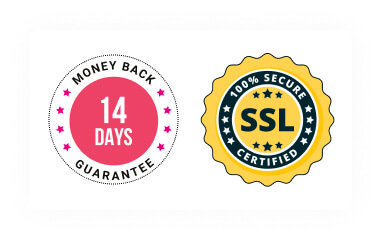
Related Courses
Intermediate
93.18% OFF
3
COPYRIGHT © 2022 One Education
Privacy Overview
Upgrade to get UNLIMITED ACCESS to ALL COURSES for only £49/year
Claim Offer & UpgradeMembership renews after 12 months. You can cancel anytime from your account.
-
 Get Lifetime Access To Your Course£9.99 Add to basket+Add
Get Lifetime Access To Your Course£9.99 Add to basket+Add


